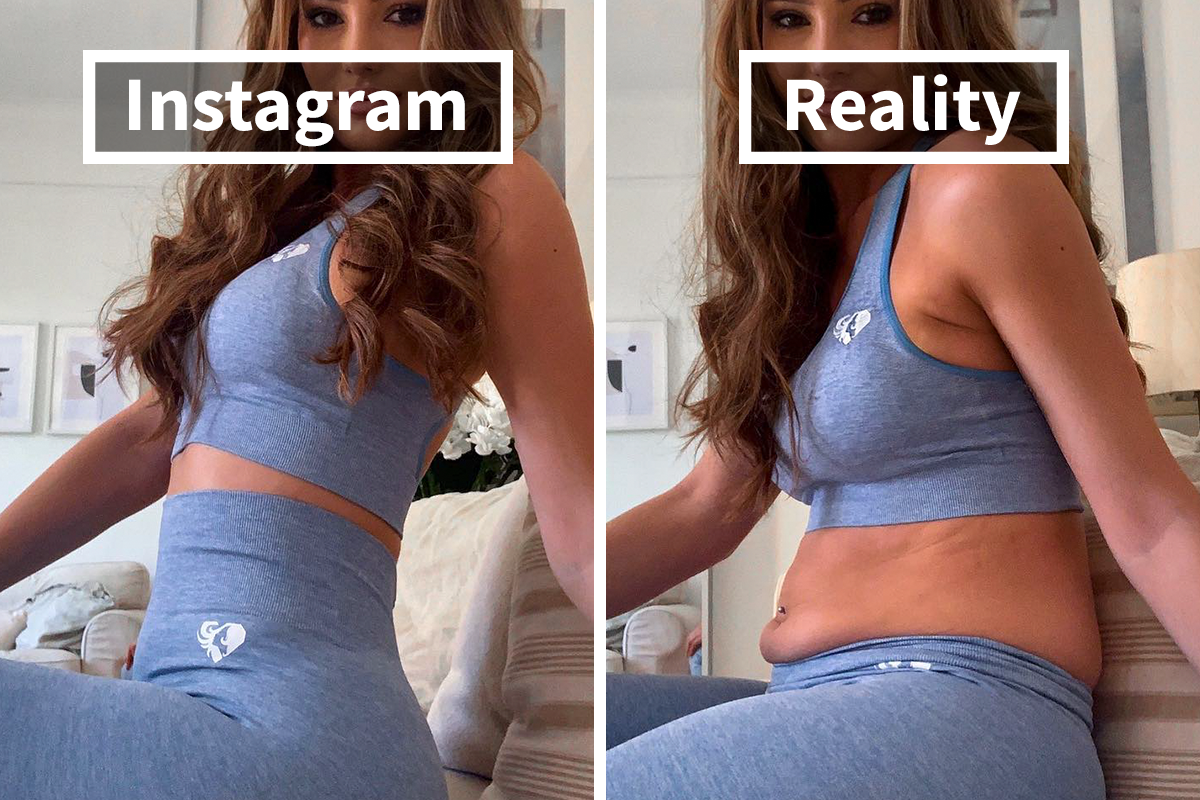
Influencer Shows Both ‘Perfect’ And Unedited Photos On Instagram So People Know The Whole Truth
Blogger Georgie Clarke has been working on a series to remind her 690K followers not to trust everything they see on social media, and she’s doing one heck of a good job if you ask me.
Each post consists of two side-by-side pictures snapped just a minute apart. The same outfits, same makeup (or the lack of it), same everything. The only difference is the approach; the first one is taken consciously trying to make Clarke look as great as possible while the second looks like a casual shot someone would take to simply remember the moment.
Scrolling through, it becomes clear that all the flawless people we see on our feed that we are constantly measuring ourselves against aren’t that perfect after all. They just remember to flex their muscles and suck in their stomach when they’re in front of the lens while the one who is behind it knows how to find the best light and the most flattering angle.
More info: Instagram
Meet Georgie Clarke, a blogger from the UK who had been struggling with body image problems but has learned to accept and appreciate herself
Image credits: georgie.clarke
“It’s no secret that in the past my mental health has affected my physical appearance and how I felt about myself,” the blogger said in one of her posts. “When I used to mentally struggle, my body would be punished as a result. I didn’t take care of myself and I was so critical of myself and how I looked.”
“This was a vicious cycle I dealt with for years without ever getting help or addressing the root of the problems which were happening in my head.”
One of the things that allowed her to do it was honesty, with herself and others
Image credits: georgie.clarke
“A few years later and some serious time dedicated to therapy, self-love, and lots of compassion towards myself, I am proud to say I am the happiest and healthiest I’ve ever felt and my relationship with my body is just as important as my relationship with my brain. And wow can you see the difference,” she continued.
“When my mental health struggles now, I have [the] tools to take care of myself. It’s taken so long to learn these tools but with compassion and love for myself during these difficult times, I am able to recognize still how important it is to take care of myself or ask for help.”
Clarke has been posting-side-by-side pictures to show that there’s more than meets the eye when it comes to social media
“This is a reminder that just because someone appears to be smiling in a picture does not mean they’re not battling their own issues”
Image credits: georgie.clarke
Image credits: georgie.clarke
Interestingly, Georgie’s series can make a bigger difference than one might originally believe. In 2019, Marika Tiggemann and Isabella Anderberg released a study called ‘Social media is not real: The effect of ‘Instagram vs reality’ images on women’s social comparison and body image.’ The research revealed found that such pictures have the power to limit the negative impact social media has on our mental health.
As part of the study, a group of women were randomly assigned to view one of three sets of posts: the “Instagram vs reality” images, the ‘ideal’ side alone, or just the ‘real’ side. When women viewed either the real or comparison posts, researchers noticed that the identification or complete avoidance of the ‘perfect’ images prevented them from comparing themselves against impossible beauty standards, thus decreasing their dissatisfaction with their own bodies.
Image credits: georgie.clarke
“It’s always the highlights we see from others when we end up comparing ourselves”
Image credits: georgie.clarke
Image credits: georgie.clarke
“But the truth behind those images is never revealed”
Image credits: georgie.clarke
Image credits: georgie.clarke
“We are all human and learning self-love is a hard yet rewarding journey”
Image credits: georgie.clarke
Image credits: georgie.clarke
Image credits: georgie.clarke
Image credits: georgie.clarke
But sometimes it would be better to turn off Instagram altogether. Turns out, the more we use social media, the sadder we seem to be.
One study found that Facebook use was linked to both less moment-to-moment happiness and less life satisfaction—the more people used Facebook in a day, the more these two variables dropped off.
The authors suggested this might be because Facebook conjures up a perception of social isolation, in a way that other solitary activities don’t. “On the surface, Facebook provides an invaluable resource for fulfilling such needs by allowing people to instantly connect. Rather than enhancing well-being, as frequent interactions with supportive ‘offline’ social networks powerfully do, the current findings demonstrate that interacting with Facebook may predict the opposite result for young adults—it may undermine it,” the researchers wrote.
Another study supports this thought. It discovered that social media use is, in fact, linked to greater feelings of social isolation. The team looked at how much people used 11 social media sites, including Facebook, Twitter, Google+, YouTube, LinkedIn, Instagram, Pinterest, Tumblr, Vine, Snapchat, and Reddit, and correlated this with their “perceived social isolation.” Unsurprisingly, it turned out that the more time people spent on these sites, the lonelier they felt.
Clarke’s 690K followers have been loving the series
Sorry but I hate these posts they are so redundant we should know by now how fake and filtered pic are and one's like this STILL give them the views they are going FOR
I'm all for it if it reaches at least one young person that has no idea how fake most influencer pictures are. We all have to learn about reality of the photoshop somewhere.
Load More Replies...Wonderful! Nobody should ever be shamed for being too fat or too skinny. Body positivity is important!
Yes! This is thing to focus on, the positive is always a beautiful thing
Load More Replies...In another shocking announcement those pretty ladies you see on Instagram are actually real people that do look normal when they aren't staging photos. In other news the world is a sphere, space is cold and I still don't give a damn about these articles trying to wring an ounce of sympathy for influencers
It's worse than that. It's a way to show off how perfectly beautiful you are whilst pretending not to implicate yourself in the tyranny of lookism. Like "oh my gosh,here I'm looking so perfect, but see in this equally carefully curated but SLIGHTLY less flattering picture I'm just like one you uglies!"
Load More Replies...Am I the only one who thinks no butt looks good in a thong? Even in the left pictures, where she "stages" the "nice" butt, it still looks not flattering for me. I think there are other kinds of underwear that are way more flattering (and comfortable) for anyone.
Imo toned, "bubble" butts look good in a thong, as it accentuates the round shape. It's still a supremely uncomfortable piece of underware though and I've never liked wearing one.
Load More Replies...Yay for body acceptance. But you don't have to post half naked photos on Instragram. Just saying.
More power to her elbow, but I don't know ow, howabout we just all agree that there's no real reason why anyone however big, small, short or tall needs to market themselves as meat on the Internet? This body image problem only solves itself when we reject this corporate idea that your life can only be judged to be perfect if its a "lifestyle". A flimsy excuse to convince you to buy their products. I'm old enough to remember when social media was about the SOCIAL not about the media as an ends in itself. Put your top on love and go do something meaningful. Don't be a person who is only remembered for posting pictures of yourself in your kecks.
also the posed ones she has her underwear/bikini bottom sides pulled WAY high up over her hips. Practically a wedgie. I much prefer her normal, relaxed, genuine human being photos. But as a female, have had unrealistic body images shoved down my throat my whole life and I do not tolerate BS. Kudos to her for being real!!
Both these pictures of my butt are beautiful and both should be shared on instagram! Who thinks like that?
So why not just post the "natural"ones then? She's perpetuating the "unrealistic" view.If ONLY natural pics of women were released,that would (rightly )become the norm.
Ok, I missed something. I just see two beautiful women that I would not have a chance in h3ll in.
I still find these refreshing. It has been done a lot, yes. But I still think we need them.
love this message. although i have seen similar posts before on BP, she is still right. I don't think some of you guys understand how much we need people like her. instagram gets new users everyday, and so many people are so insecure because there are still influencers who feed off our insecurities. and those influencers are just as insecure, and we should all uplift each other. i wish she was around when i was younger.
Sorry but I hate these posts they are so redundant we should know by now how fake and filtered pic are and one's like this STILL give them the views they are going FOR
I'm all for it if it reaches at least one young person that has no idea how fake most influencer pictures are. We all have to learn about reality of the photoshop somewhere.
Load More Replies...Wonderful! Nobody should ever be shamed for being too fat or too skinny. Body positivity is important!
Yes! This is thing to focus on, the positive is always a beautiful thing
Load More Replies...In another shocking announcement those pretty ladies you see on Instagram are actually real people that do look normal when they aren't staging photos. In other news the world is a sphere, space is cold and I still don't give a damn about these articles trying to wring an ounce of sympathy for influencers
It's worse than that. It's a way to show off how perfectly beautiful you are whilst pretending not to implicate yourself in the tyranny of lookism. Like "oh my gosh,here I'm looking so perfect, but see in this equally carefully curated but SLIGHTLY less flattering picture I'm just like one you uglies!"
Load More Replies...Am I the only one who thinks no butt looks good in a thong? Even in the left pictures, where she "stages" the "nice" butt, it still looks not flattering for me. I think there are other kinds of underwear that are way more flattering (and comfortable) for anyone.
Imo toned, "bubble" butts look good in a thong, as it accentuates the round shape. It's still a supremely uncomfortable piece of underware though and I've never liked wearing one.
Load More Replies...Yay for body acceptance. But you don't have to post half naked photos on Instragram. Just saying.
More power to her elbow, but I don't know ow, howabout we just all agree that there's no real reason why anyone however big, small, short or tall needs to market themselves as meat on the Internet? This body image problem only solves itself when we reject this corporate idea that your life can only be judged to be perfect if its a "lifestyle". A flimsy excuse to convince you to buy their products. I'm old enough to remember when social media was about the SOCIAL not about the media as an ends in itself. Put your top on love and go do something meaningful. Don't be a person who is only remembered for posting pictures of yourself in your kecks.
also the posed ones she has her underwear/bikini bottom sides pulled WAY high up over her hips. Practically a wedgie. I much prefer her normal, relaxed, genuine human being photos. But as a female, have had unrealistic body images shoved down my throat my whole life and I do not tolerate BS. Kudos to her for being real!!
Both these pictures of my butt are beautiful and both should be shared on instagram! Who thinks like that?
So why not just post the "natural"ones then? She's perpetuating the "unrealistic" view.If ONLY natural pics of women were released,that would (rightly )become the norm.
Ok, I missed something. I just see two beautiful women that I would not have a chance in h3ll in.
I still find these refreshing. It has been done a lot, yes. But I still think we need them.
love this message. although i have seen similar posts before on BP, she is still right. I don't think some of you guys understand how much we need people like her. instagram gets new users everyday, and so many people are so insecure because there are still influencers who feed off our insecurities. and those influencers are just as insecure, and we should all uplift each other. i wish she was around when i was younger.

 Dark Mode
Dark Mode 

 No fees, cancel anytime
No fees, cancel anytime 


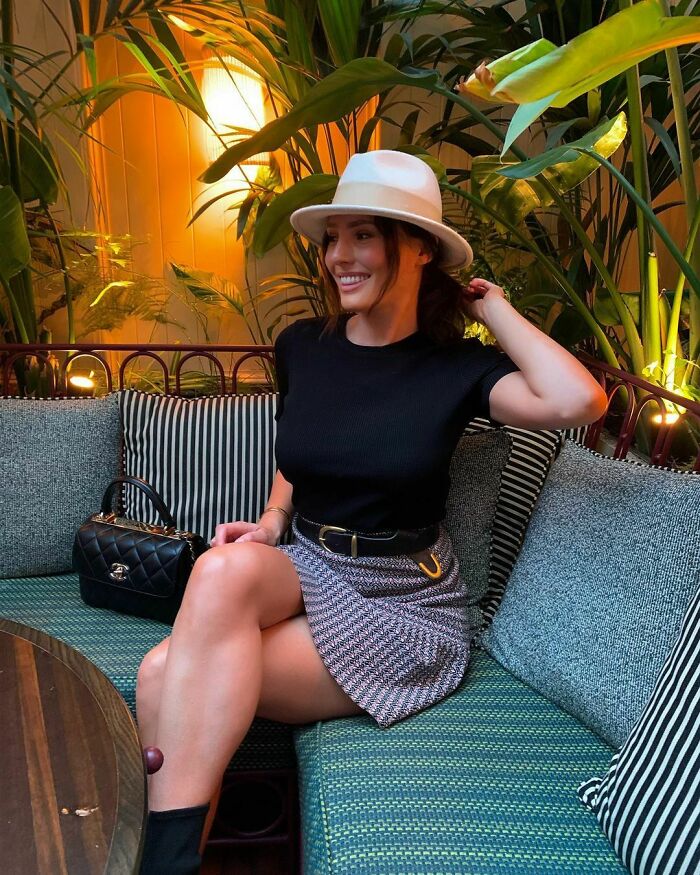
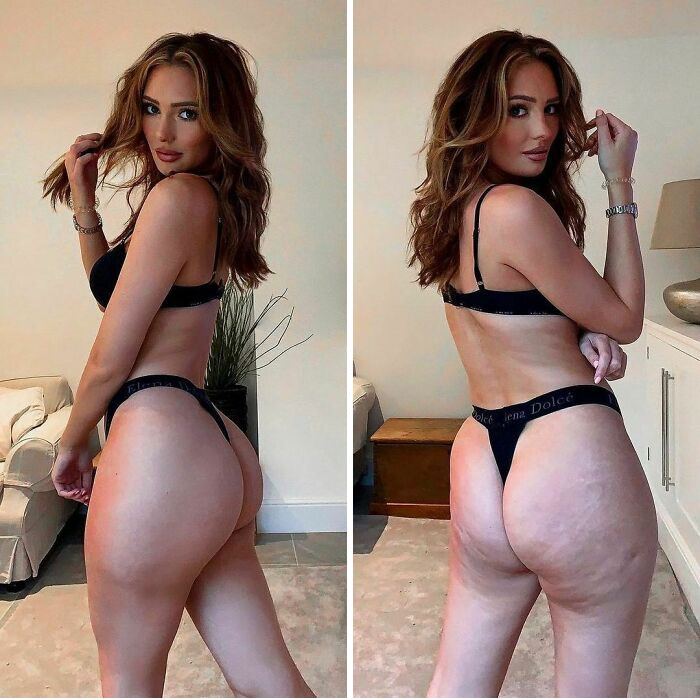
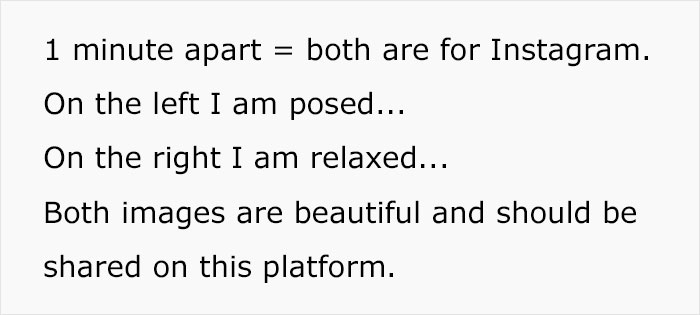
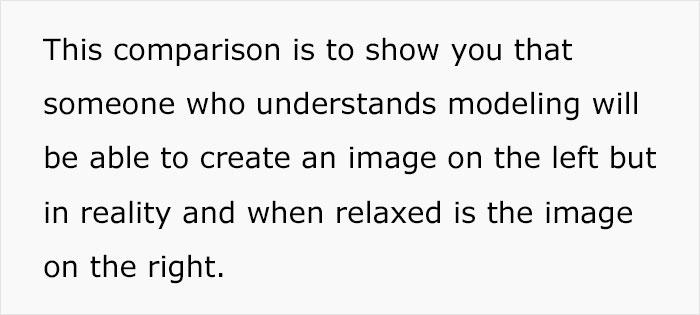
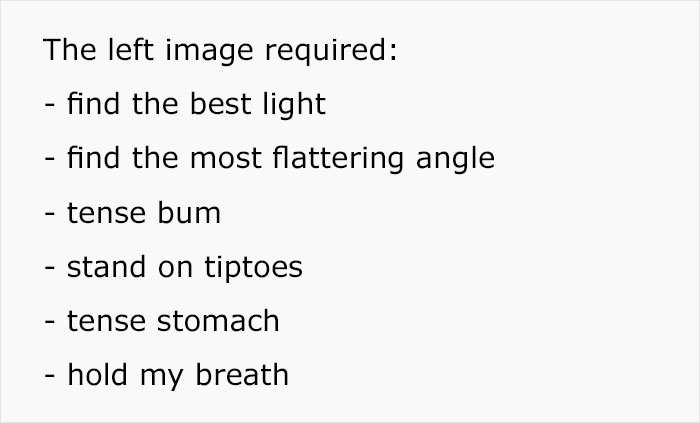

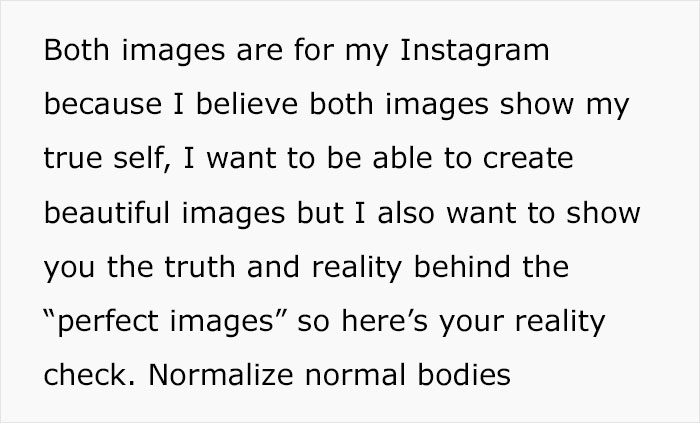
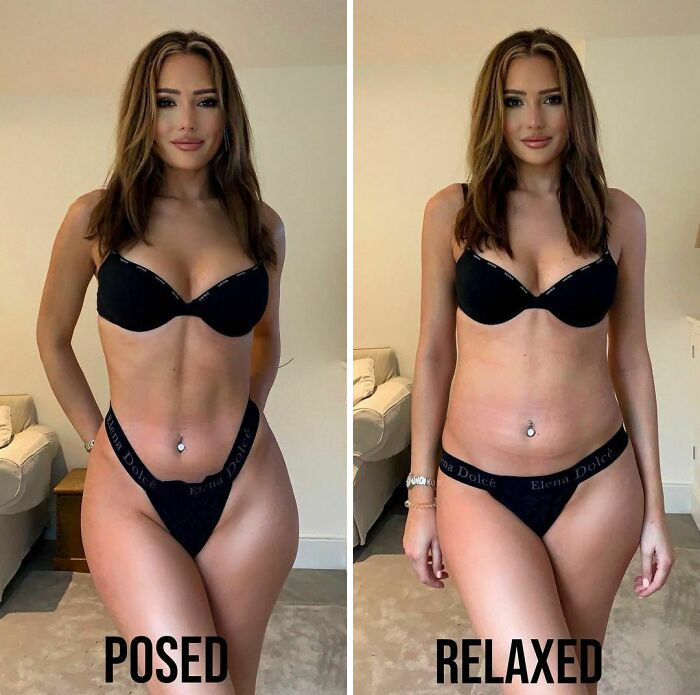
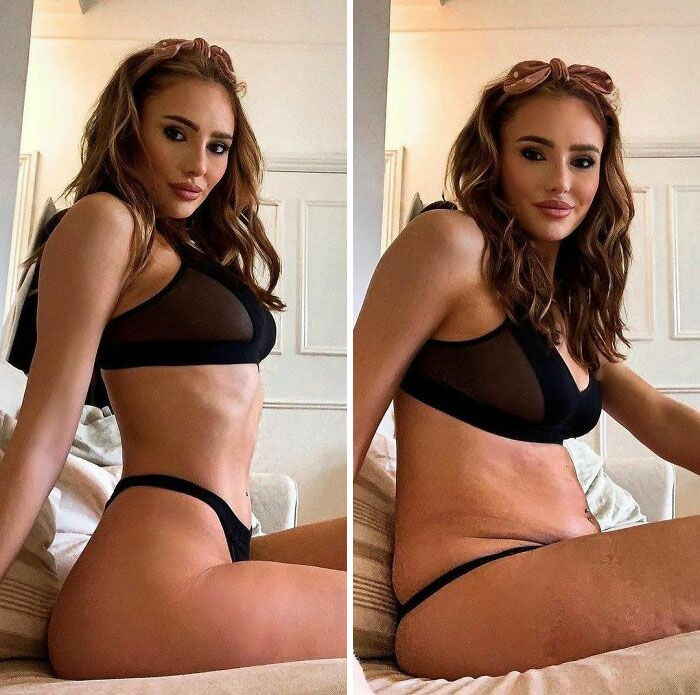
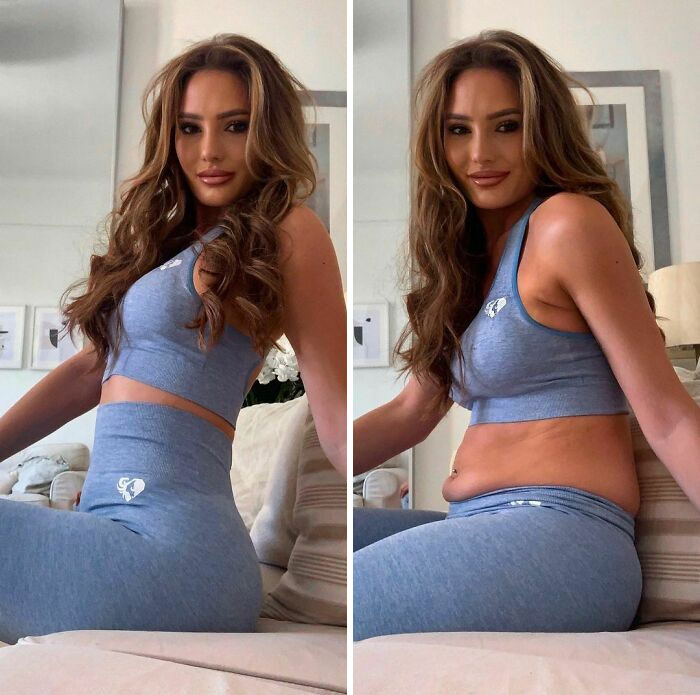
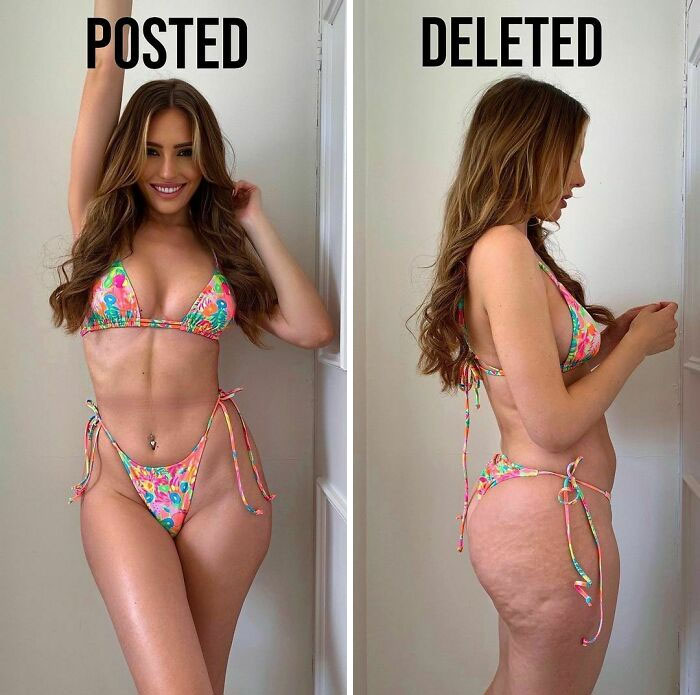
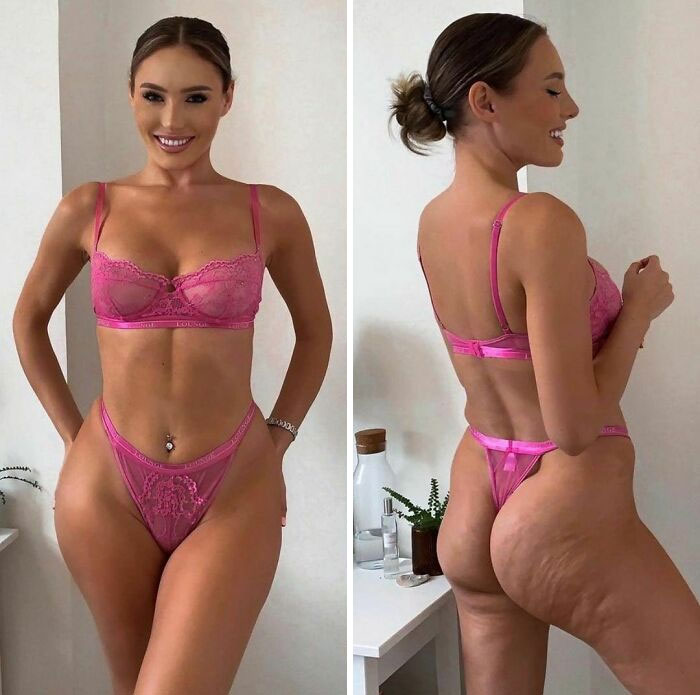
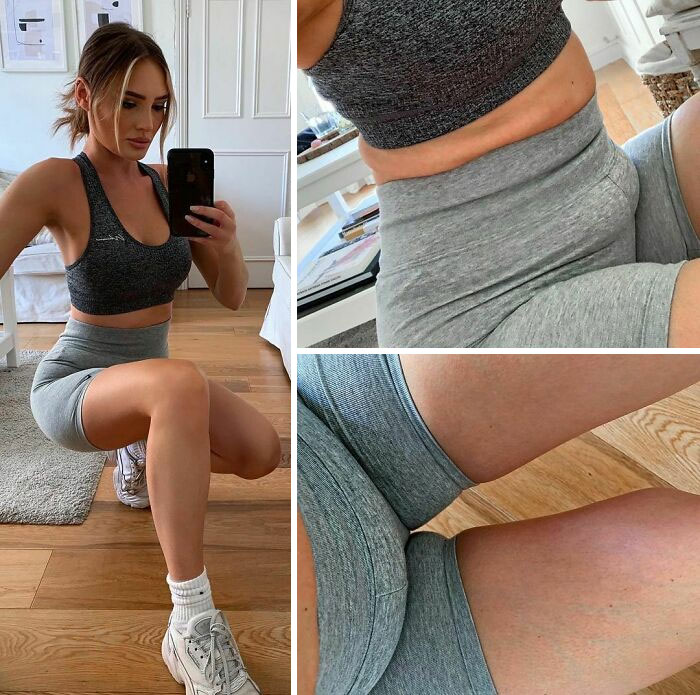
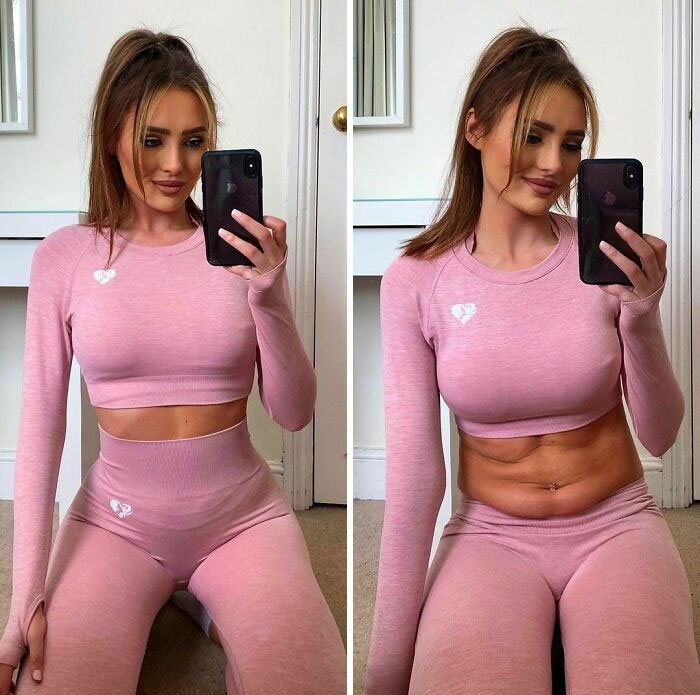
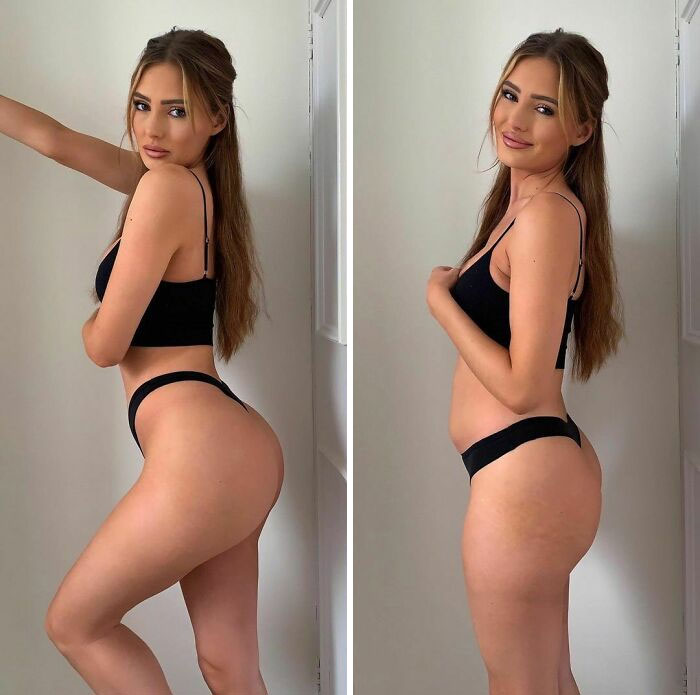
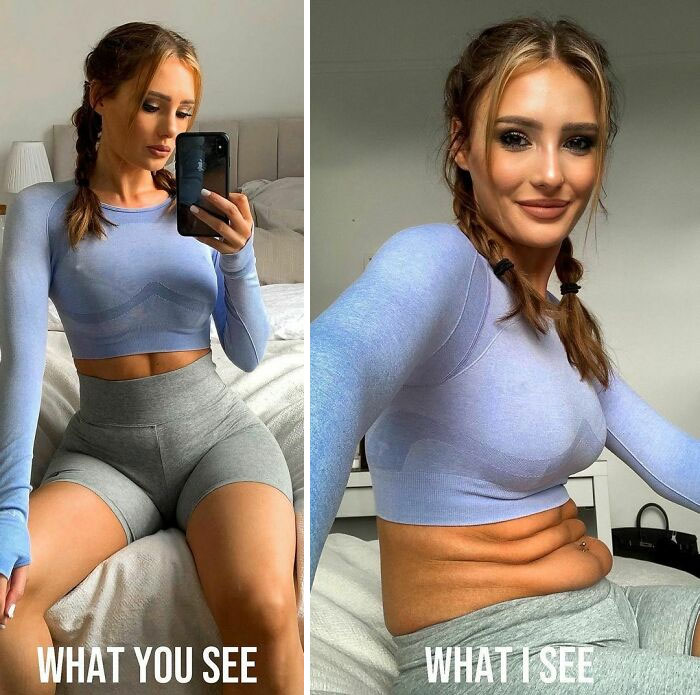
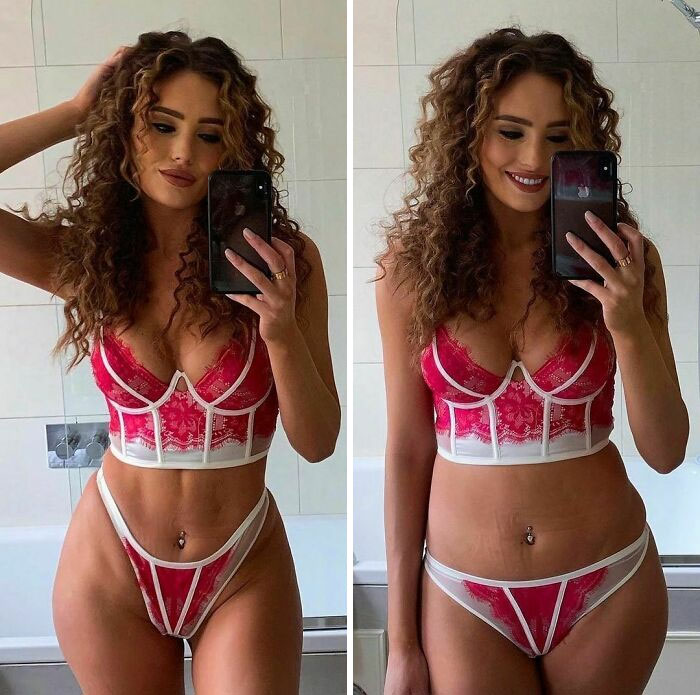
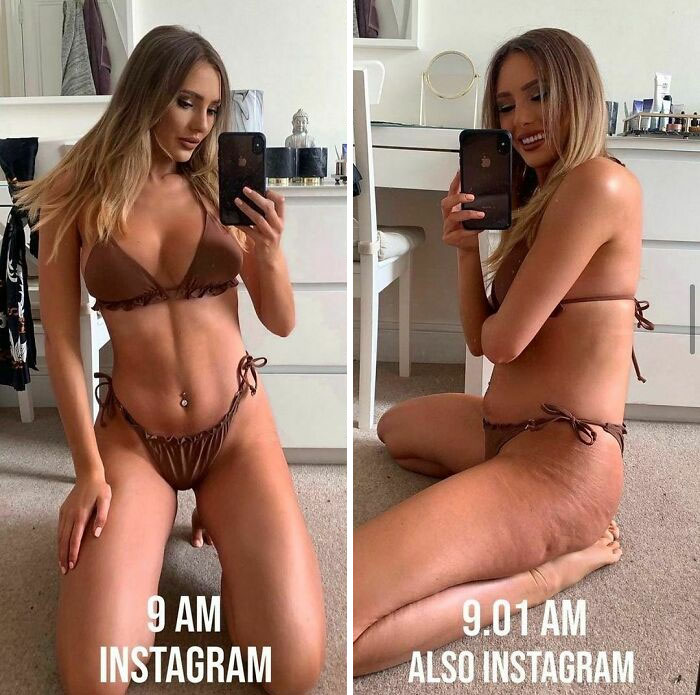
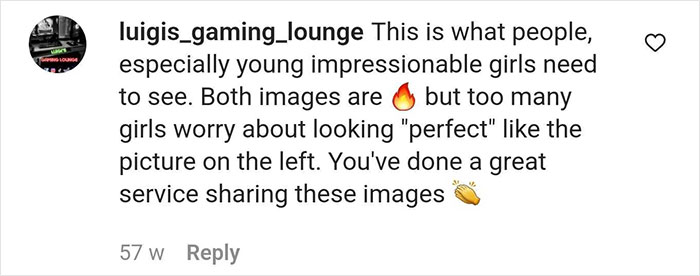
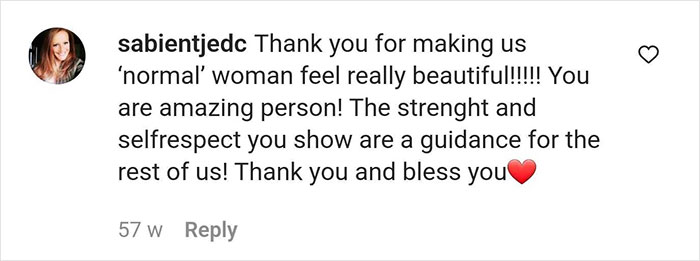

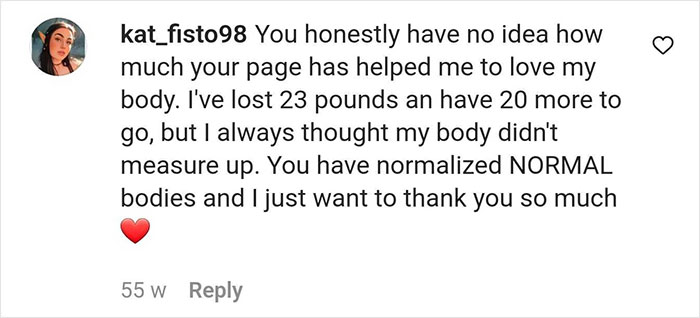








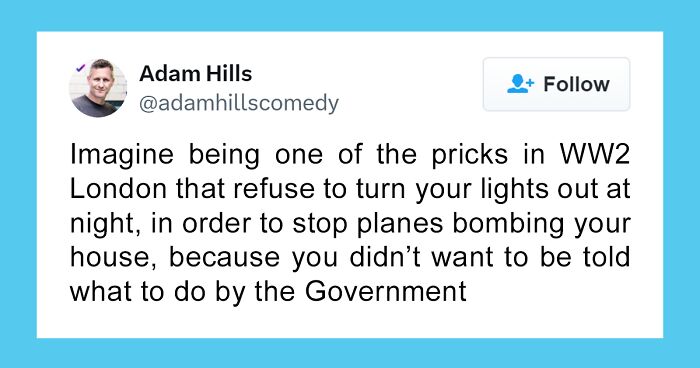
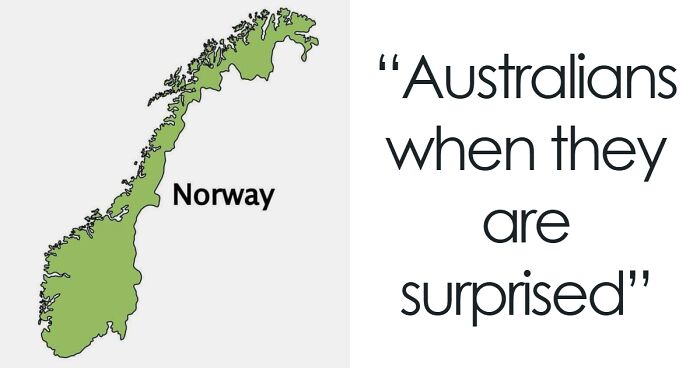


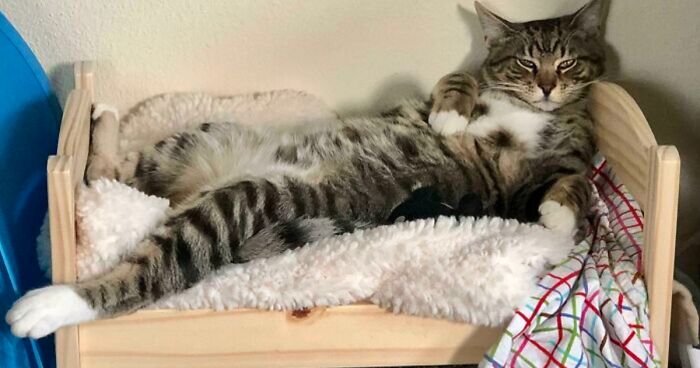

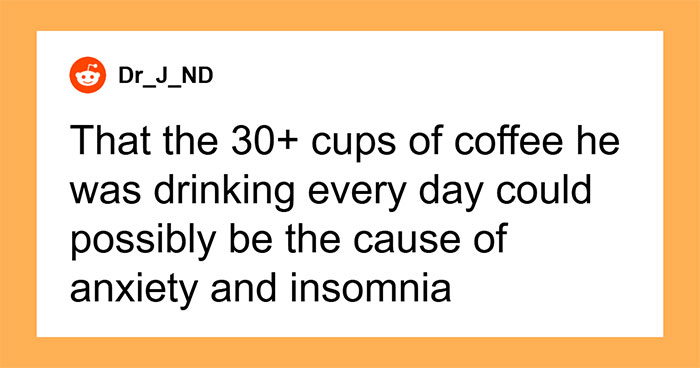
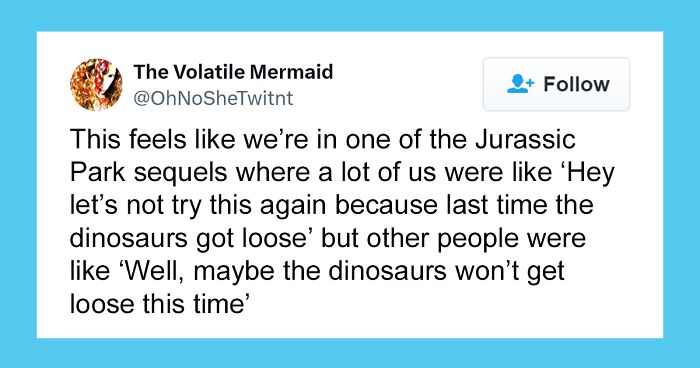
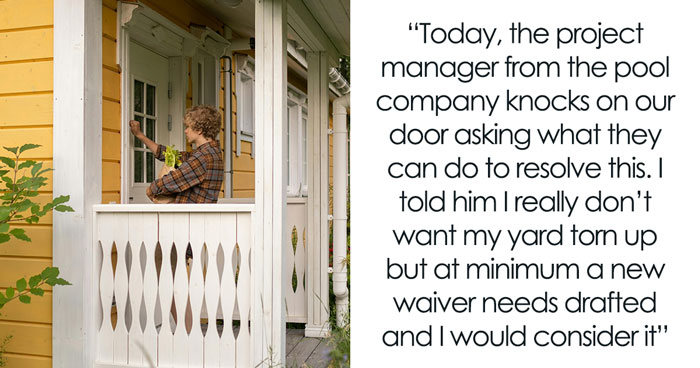
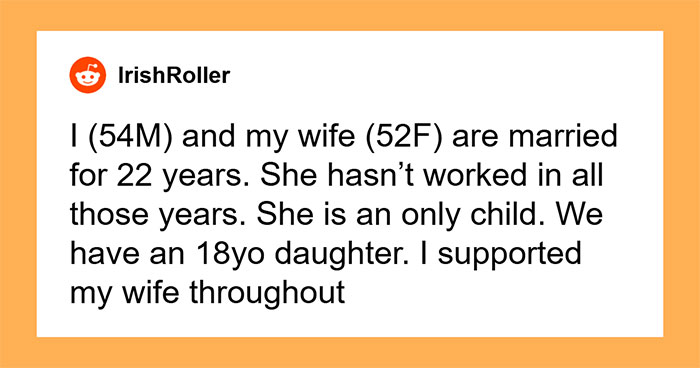
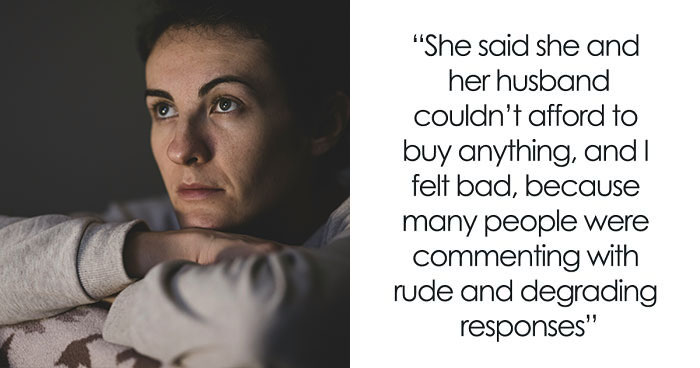
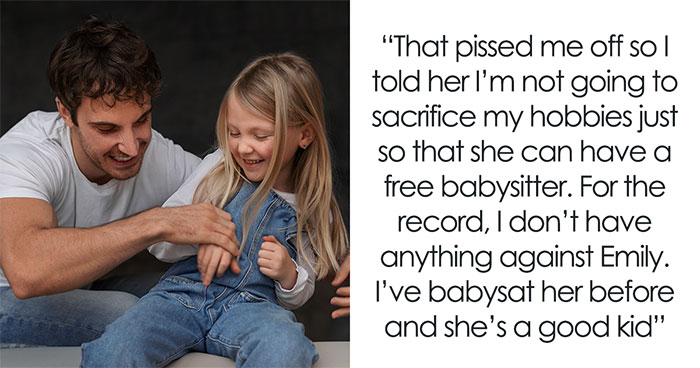
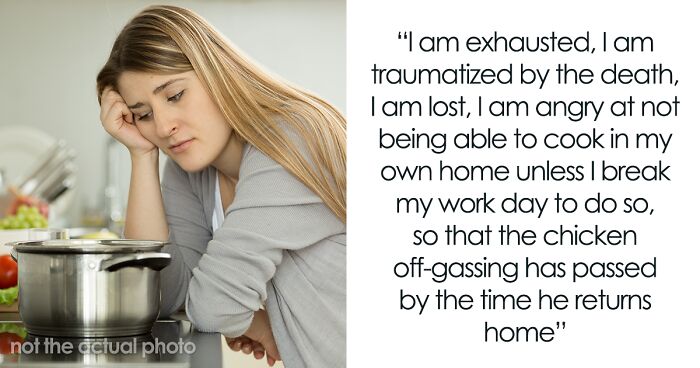
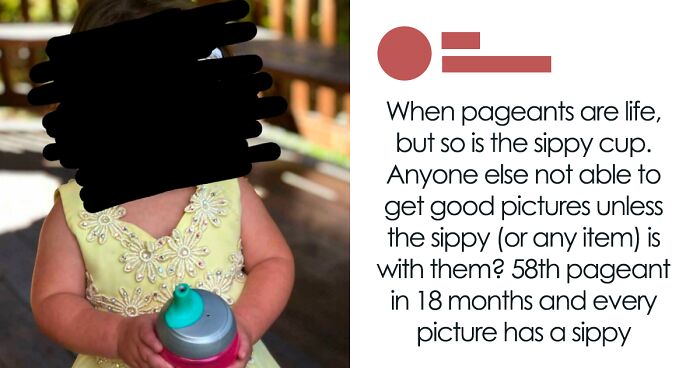
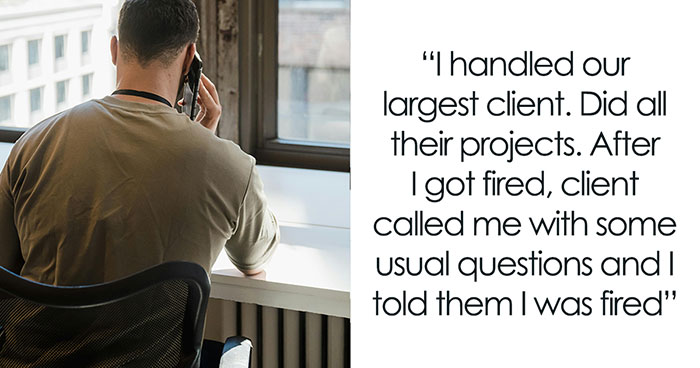


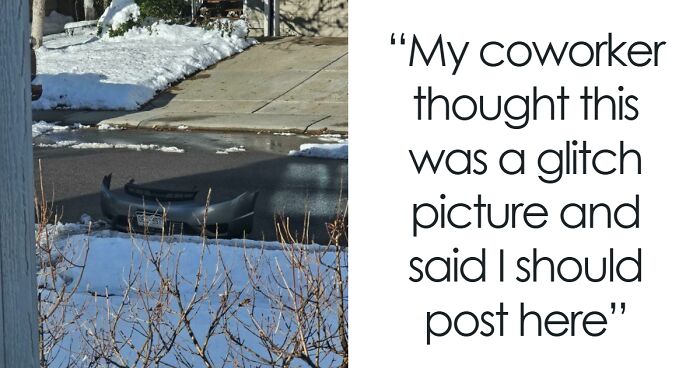
75
28